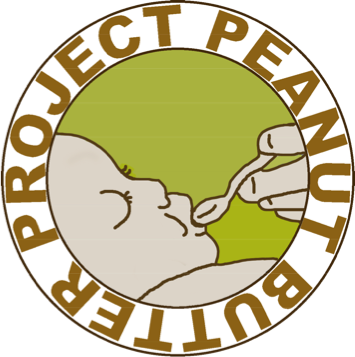Project Peanut Butter is unique among RUTF manufacturers in that we also distribute RUTF at several mobile clinic sites. This means that we stay very in touch with both aspects of the RUTF solution and are uniquely positioned to advocate for changes in either aspect when they are needed.
Production of RUTF
Project Peanut Butter produces RUTF in local factories in Malawi, Sierra Leone, and Ghana that are internationally accredited. Our product adheres to strict nutritional, microbiological, chemical, and organoleptic standards. PPB distributes this RUTF at our own mobile clinics and also sells a large amount at the cost of manufacture to multiple governments and aid organizations in order to reach more children in need of treatment.
Distribution of RUTF
Project Peanut Butter currently operates about 20 mobile clinics in southern Malawi, where PPB nurses assess children for malnutrition and provide life-saving treatment to those who qualify at no cost.
At a typical PPB mobile clinic, PPB staff and volunteers arrive early in the morning to a previously designated site, often a simple grouping of useable buildings in a village. As mothers wait with their children, a nurse might lead the mothers in singing. The songs convey important ideas about nutrition, family planning, hygiene, illness prevention, health care, and other topics. A child's height, weight, and mid-upper arm circumference (MUAC) are measured and compared to international standards.
Each child is checked for edema, a painful swelling indicative of severe malnutrition. Recent health history is reviewed. Nurses counsel mothers after their children are measured. If a mother’s child is malnourished, she is given a 2-week supply of RUTF that the child may eat at any time during the 2 weeks. She is instructed to return to the clinic for bi-weekly check-ups and to pick up more food if the child hasn’t fully recovered. Typically, full recovery takes 4 to 8 weeks.
Project Peanut Butter also enlists the help of health surveillance aides (HSAs) and community volunteers whose job it is to identify children in the community who may be malnourished and encourage their mothers to visit a PPB clinic site for assessment and treatment. The idea behind this is to catch malnutrition in its earliest stages, before it has become life-threatening.
"I am grateful to all the people working to make RUTF available. My children are alive thanks to it."- Aida, mother of Pilirani, successfully treated Spring 2009.





